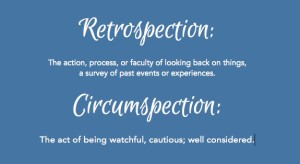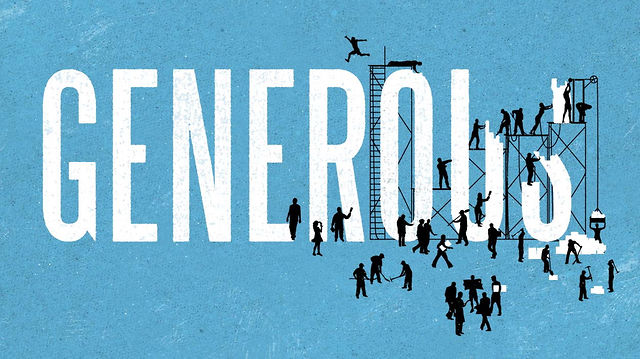Some of the best humor comes from the most stressful moments. Here are few examples I’ve come across:
- I’m not tense, just terribly, terribly alert.
- When you’re stressed you eat cake, brownies, and cookies because “stressed” spelled backward is “desserts.”
- Stress balls work really well when you throw them at people.
Humor aside, stress—not worry, mind you—has a number of positive effects. Researchers point out that a good shot of stress can:
- Increase your brain’s effectiveness: brain-derived neurotrophic factors (BDNF) encourage the growth of neurons in the brain, thus increasing productivity, concentration, long-term memory, and mood.
- Strengthen your immune system (albeit, short term only): Interleukins are chemicals the brain produces preparing the body for injury or infection, and therefore strengthening the immune system
- Inject a burst of energy: The fight or flight instinct triggered by stress can provide short term bursts of energy and heightened awareness. While not the best ongoing hormone to live by moment to moment, at certain times adrenaline can be a life-saver (literally).
In fact, you athletes who are reading this blog know exactly what I mean: physical training is essentially the act of intentionally putting the body (and mind for that matter) under stress in order to develop the resiliency to overcome the stress.
That’s why, as a high school football coach (back in the day), I demanded 100% in practice from my players, so they would learn to perform when their stress was highest—specifically, Friday night against the opponent, who was hell-bent on imposing their will on our team.
Worry, on the other hand, is a negative response to stress. Worry focuses on what might happen. We “worry warts” know that it can negatively impact our sleep, our most important relationships, and in general, our quality of life.
Seriously though, unchecked worry can lead to potentially addictive and destructive behaviors–like cigarette smoking and abuse of alcohol and drugs.
To counteract the potentially negative effects of stress leading to worry, consider employing 2 strategies—retrospection, which is “looking back” and circumspection, which is “looking around.” These 2 strategies will not only neutralize worry, but also lead to you becoming a more resilient person in the face of (potential) worry:
Look back (retrospection): Because worry is a negative response to a potentially positive opportunity (stress), consider reflecting on your life in the following ways with the following 3 questions:
- What “worse case scenario” are you playing over and over in your mind? Rarely is this scenario actually likely to occur, but it dogs us nevertheless. They arise from fears, most of them linked to experiences in our childhood, and even though we might reason with them as adults, they resist logic and common sense. Perhaps it is the threat you feel that you might lose your job, or end up bankrupt and penniless. Or, the fear that a spouse will leave, or worse, will be there physically yet absent in every other way.
- What idealized views of the past do you play over and over in your mind? You can recognize these by their quixotic interpretations of past successes—more fanciful and extravagant than realistic and balanced. Example: about 10 years ago I worked on a big initiative at a non-profit called “The Truth Project.” And while it was true that I led the initiative, and that overall the initiative was very successful, if I don’t stop and think carefully about my involvement, I can quickly forget the some tough times I had to slog through, and overlook the fact that many of the successes that were flat out “blessings,” having nothing to do with what I or the team did or didn’t do. “We’re just not that smart” is the phrase that comes to mind here.
- What positive outcome do you NOT let yourself believe will come to pass? This is the curious and complicated one—where we resist our own success, strength, or authenticity. Look back on the times when you came close to succeeding. Did you do anything that might have sabotaged your own success?
Look around (circumspection): Because worry is a negative response to a potentially positive opportunity (stress), consider looking at the current circumstances of your life right now with the following 3 questions:
- Who is my biggest champion in my life right now? Many times we buckle under pressure because we feel alone. Take a minute to consider one or more persons who are “for you,” and give them a call even if it’s just say hello. The simple act of reaching out to another person will chase away the threat of isolation and give you a fresh view of the stress in which you find yourself.
- What are my top 3 personal core values, and, can I say I am living by them to the best of my ability? The term “circumspection,” of course, comes from the word “circumference”—the visual being “encircled.” Our core values come from what we hold most important in our lives. There is dissonance that comes from living in opposition to those values and can be very jarring and disorienting. Right now, name those 3 values and ask the question, “are there any people or memories that come to mind which illustrate I am not living consistently with my core values?
- When do I give myself time to reflect on my life—looking back and looking around. The fastest way to achieve a fully-blown case of burn-out is to leave this practice out of your life—reflection. For each of us reflection looks different. Some of you might read a fiction novel, suspending the pressures of day-to-day, and letting the vicarious narrative of a novel diffuse daily pressures. Others might write in a journal, regularly get together with close friends and engage in honest conversations about your life. And some of you write blogs (ok, so I betrayed one of my best coping mechanisms). Whatever you do, do it. Your life may not depend on it, but your inner life certainly does.
What strategies do you use to turn stress into meaningful exercises in resiliency, rather destructive experiences in worry and anxiety?









